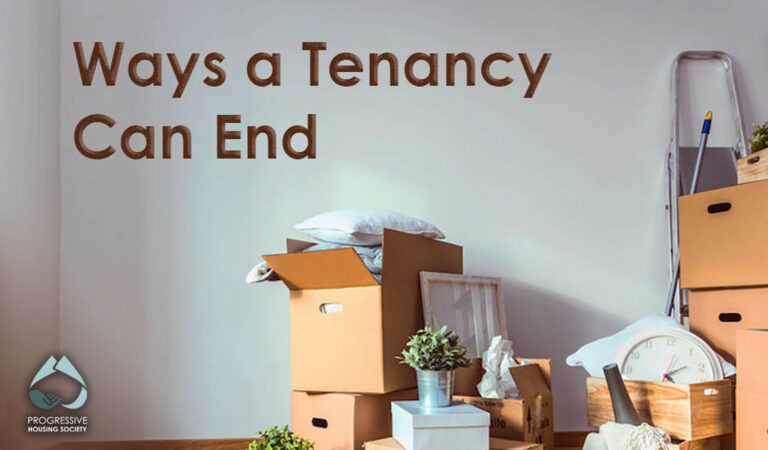What to Know While Renting
-
by
 PHS
PHS
What do you need to know while renting? Successfully finding and renting a place is a great accomplishment. But how can you make sure you keep it? Problems can occur during your tenancy and it can easily get complicated.
When problems do come up, it is often difficult to determine if the landlord or the tenant is responsible. This could lead to disagreements between the two parties and result in an ugly situation. Here are a few rules to be aware of to help prevent or resolve these situations.
Rent Payment
Rent payment may be the most important part of a tenancy. Not paying rent on time can result in major consequences, such as eviction. It is important to talk to your landlord and make it clear what the rent payment method is and when it is due.
When paying rent you should know that
- As a tenant, you are responsible for paying your rent when it’s due, according to the tenancy agreement
- If the rent is paid with cash, the landlord must provide a receipt for the rent
- Unless the tenant has abandoned the rental unit or there is a court order, the landlord must not seize any personal property of the tenant, or interfere with the tenant’s access to their personal property even when rent has not been paid
Termination or Restriction of Services or Facilities
What if you came home one day to find that your landlord had changed the bathroom locks? Or the locks to your storage unit? Well, confronting your landlord about the unwelcome changes may be needed. The Residential Tenancy Act has rules and regulations in place to prevent or deal with situations like these:
- The landlord must not terminate or restrict services or facilities that are essential to the tenant’s use
- Termination and restriction may happen if a 30 days’ written notice is given, or rent is reduced in an amount that is equivalent to the decrease of access to the service or facility
Protection of Tenant’s Right to Quiet Enjoyment
While sitting in your living room after a long and stressful day, you glance at the window to see a pair of eyes peering into your home. Or when working away at your desk, your neighbour begins a shouting match that can be heard clearly from your home. As a tenant, the place you call home should be a place where you can be safe and comfortable. You have earned the right to have:
- Reasonable privacy
- Freedom from unreasonable disturbance
- Exclusive possession of the rental unit (unless the landlord has gained the right to enter your unit)
- Use of common areas of reasonable and lawful purposes, free from significant interference
- And anything else that relates to the comfort of your living situation
If you feel that your right to quiet enjoyment has been breached, speak to your landlord first to see if there’s a solution to your problem.
Landlord’s Right to Enter Rental Unit Restricted
Walking into your home and seeing your landlord standing in your living room or inspecting your rooms may feel like a huge invasion of privacy. As a tenant, you should be aware of your landlord’s rights so as to understand what is acceptable and what isn’t.
A landlord should not be entering a rental unit while it is being rented out for any purpose unless
- Tenant gives permission at the time of the entry or not more than 30 days before the entry
- The landlord provides a written notice that states the purpose and time and date of the entry
- Landlord has an order of the director authorizing the entry
- Tenant has abandoned the rental unit
- In an event of an emergency and when it is necessary to protect life or property
- Monthly inspections may occur if negotiated and agreed upon in the tenancy agreement
Landlord and tenant obligations to repair and maintain
Both the landlord and the tenant are obligated to keep the property well maintained. It would be beneficial for both parties if everything was maintained well as the landlord won’t be troubled for the repairs, and tenants will be able to keep their security deposits. It is the landlord’s responsibility to maintain and repair the property so that it complies with health, safety and housing standards required by law. For reasonable wear and tear, such as piping issues, heating, and anything related to the age or state of the property, tenants are not responsible for the repairs needed. For tenants, they are responsible for any damage caused by them, such as breaking a hole in the wall or breaking the light switch.
Rent Increases
Rent increases are common and can happen for a variety of reasons. Here is a guideline on how your landlord may increase your rent legally.
- A landlord must not increase rent for at least 12 months after previously increasing rent or the first-time rent was payable.
- If the landlord wants to increase rent, there must be at least 3 months’ notice before the date of increase.
- Rent increases are regulated, and a landlord may only increase by the amount calculated in accordance with the regulations. As a tenant, you also have a say in the rent increase and can agree to it in writing. If the landlord collects the increased rent without going through the proper channels, the tenant may deduct the increase from rent or recover the increase some other way.
Sublet versus Assignment
Subleasing or Assigning your rental unit is a useful way to cover your rent and responsibilities. Subleasing is a temporary solution and a transfer of rights to the subtenant. It allows you to leave the unit for a certain period of time without having to pay rent. This could be useful if you need to stay at a different place for an extended period of time or want to hold onto the unit while travelling.
An assignment is when the tenant permanently moves out from the rental, and the rights and responsibilities of the previous tenancy agreement is assigned to a new tenant. This is useful for people who may want to move to a different place without worrying about their existing agreement. Subleasing and Assignments are two options that may be useful if you need to spend an extended period of time away from your rental unit.
Enjoy Your Tenancy
Everyone wants an enjoyable tenancy and these periods are frequently quite smooth sailing, but problems can occur occasionally. If your questions were not answered, there are many resources online that may be able to answer them. If you feel that the problem has not been resolved, you can use the Solution Explorer provided by the Government of BC, contact the Residential Tenancy Branch, or apply for a dispute. By knowing your rights, you will be able to solve your problems without much trouble.
Progressive Housing Society provides support and assistance to those struggling with mental health, substance use, or homelessness. If you, or someone you know, is looking for support, check out our current services and don’t be afraid to reach out for help!
References
Canada, Government of B.C., B.C. Law. (2000). Residential Tenancy Act. Victoria: British Columbia, Residential Tenancy. Retrieved June 13, 2019, from http://www.bclaws.ca/EPLibraries/bclaws_new/document/ID/freeside/00_02078_01#section41
Sublet and Assignment. (n.d.). Retrieved June 13, 2019, from http://tenants.bc.ca/sublet-and-assignment/
TRAC. (n.d.). Retrieved June 14, 2019, from http://tenants.bc.ca/




